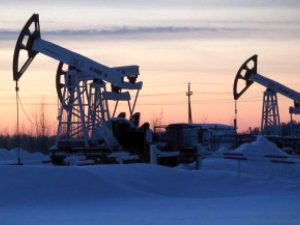Can Pakistan afford for the EU to switch back to unclean fuel? No

There is no denying that the impacts of climate change are becoming more and more obvious everywhere in the world.
KARACHI:
Following the Russian invasion of Ukraine in February of this year, Western sanctions came into effect, and as a result, the US and EU countries have stopped purchasing gas and RLNG from Russia. However, this caused gas prices to soar to exorbitant heights on the international markets.
The globe is currently experiencing a severe energy crisis, and concerns about the recession and climate change are on the horizon. However, in an effort to escape the grip of the energy crisis, EU nations have abandoned their pledge to phase out the use of filthy fuels and expanded their reliance on less expensive coal-fired power plants.
But developing countries like Pakistan, which are already struggling, appear to be bearing the brunt of the costs of this conflict, these sanctions, and their effects on the climate.
It is no secret that climate change’s consequences are becoming more pronounced everywhere in the world. Over 1,500 people were killed in Pakistan as a result of flash floods and torrential rains, and eight million people were internally displaced as a result, which hastened the spread of illness in camps and caused over $30 billion in economic losses. The sequence of events alone demonstrates the profound effects of climate change.
Even if it ought to be a wake-up call, this is not the first instance of it.
Both the devastating flooding in 2010 and the country’s deadly heatwave in 2015 were mostly caused by man-made climate change.
At the COP26 climate change conference in Glasgow in 2021, nations made a commitment to gradually phase out the use of filthy fossil fuels. Prior to that, the Paris Agreement of 2016 was the outcome of global promises to achieve the same.
Strangely enough, Reuters reported earlier this week that “some countries are rebuilding mothballed coal facilities to provide enough electricity for this winter, while others are raising production, as they want significant gains from exports.”
According to a study from February 2019 titled “The Economic and Investment Plan for the Western Balkans,” there are 16 outdated coal power plants in the Western Balkans that “cause 3,000 premature deaths, 8,000 cases of childhood bronchitis, and other chronic illnesses, costing both health systems and economies a total of 6.1-11.5 billion euros every year.” Air pollution from fossil fuel power plants or other emitters, according to the report, has no national boundaries. The EU’s work in the Western Balkans was then praised, with the statement that it “would enhance health and increase economic prosperity across Europe.”
“The power plants and mines (in Tharparkar, Sindh) would be responsible for a projected 29,000 air pollution-related deaths over an operating life of 30 years, 40,000 asthma emergency room visits, 19,900 new cases of asthma in children, 32,000 preterm births, 20 million days of work absence (sick leave), and 57,000 years lived with disability related to chr,” according to a report by Pakistan’s Alliance for Climate Justice and Clean Energy (ACJCE).
He stated that the European countries in the recession have discovered coal to be the quickest and easiest alternative to Russian gas during a conversation with Abid Qaiyum Suleri, Executive Director for the Sustainable Development Policy Institute (SDPI). In the event that it was unable to find gas on the international markets at a reasonable price, he said Pakistan could choose to use its coal-fired power facilities. However, he cautioned that this year’s lack of a spring season in Pakistan was one of the most obvious symptoms of climate change. Additionally, the heat wave broke out sooner than anticipated, decreasing wheat production and wiping out Punjab’s mango harvest. The monsoon season arrived shortly after that, and the melting glacier broke the surface. Additionally, the country was flooded due to the seven to eight times above-average rainfall.
And all of this occurred in Pakistan, a tiny developing nation that contributes less than 1% of the world’s greenhouse gas emissions.
Suleri concluded by saying that although we must do our part to reduce carbon emissions, we also need the assistance of some of the biggest offenders in the world. The least that the world’s polluters can do, he demanded in his call for climate justice, is pay for the damages being suffered in developing nations like Pakistan.
But last week, the former finance minister Miftah Ismail disclosed that European embassies had told Pakistan not to expect any climate reparations at all. Alas!
Of course, the harmful chemicals that have been released into the environment, mostly by industrially developed countries, are to blame for the floods in Pakistan, Hurricane Ian in Florida, the summer drought, and heat waves in Europe.
Given the nature of the events being observed, we can be sure that each time an event plays out, it is more severe than the last, even though we are unsure of the harm this return to filthy fuel will bring. And it is clearer than ever that renewable energy projects like those using hydro, solar, and wind energy hold the key to finding a long-term solution to the energy (and climate) dilemma.










































